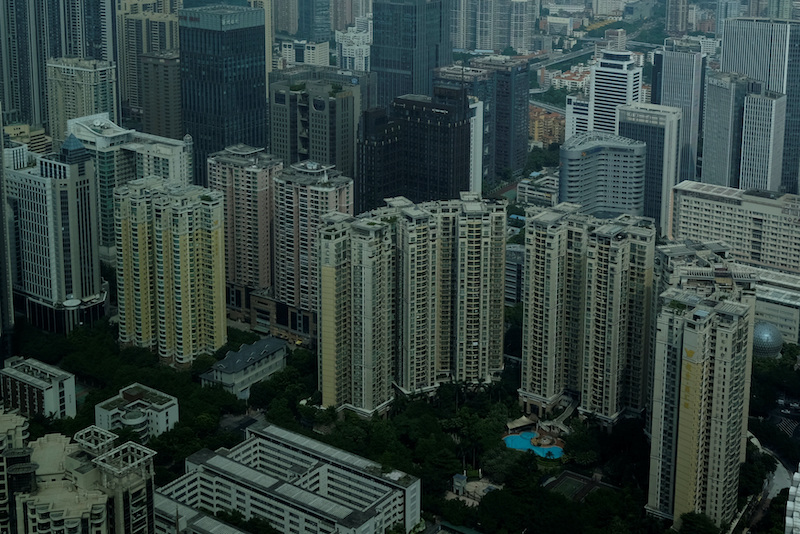Shares of Chinese property developers soared on Thursday amid hopes that cities on the mainland will roll out further easing measures to help rescue the troubled sector.
Major construction firms such as Country Garden, Guangzhou R&F Properties, CIFI Holdings, Logan Group and Times China all surged by more than 10% in morning trading, versus a 0.5% rise in the broader market Hang Seng Index.
All ended up by 6.5% to more than 8% at the close of trading.
The Hang Seng Mainland Properties Index in Hong Kong was up by more than 4% at the close of trading, while China‘s CSI Real Estate Index rose by 3.5%.
The rally followed news that officials in Guangzhou, a city of about 14 million in southeastern Guangdong province, had allowed bigger home price cuts – of up to 20% from 6% previously, according to a report by financial news outlet Yichai on Thursday.
That is the biggest home price cut by any top-tier city in the country, but comes as no surprise given the dire state of the sector and the number of developers that have defaulted on their debts.
In the first half of this year, only 39,618 new homes were sold in Guangzhou, one of China‘s four top-tier cities, which is 35% less than the same period a year earlier, Yicai said.
Financial information outlet REDD reported on Thursday, citing two sources, President Xi Jinping said in a closed-door meeting in late August that reasonable relaxation policies should be implemented as soon as possible to turn around the housing market.
ALSO SEE: China Property Bonds Being Shunned Over Default Danger
Housing Prices Regulated
Chinese cities set limits on how much developers can raise or lower their prices. The government is wary of big price cuts as it does not want property prices to tumble or for the cuts to trigger protests from previous buyers.
The four top-tier cities – Beijing, Shanghai, Shenzhen and Guangzhou – are, however, excluded from being asked to roll out more relaxation, the report said.
Chinese local authorities regulate floors and caps for sales in the property sector to avoid sharp fluctuations in price. Most cities set a floor of around 6% for cuts in sale prices.
Guangzhou’s new floor applies to the entire city although not every housing development will need to reduce prices by 20% to attract buyers, Yicai quoted a property agent as saying.
Calls to Guangzhou’s housing regulator seeking comment went unanswered.
More than 200 Chinese cities have taken steps to boost fragile demand this year, including subsidies, smaller down payments, cuts in mortgage interest rate and allowing bigger mortgages.
Recent data shows property sales continue to decline with the sector in crisis. A credit crunch since last year, triggered by tighter debt cap rules, has pushed some major developers into defaulting on bond payments while some some buyers have threatened to stop paying mortgages for unfinished projects.
- Reuters with additional editing by Jim Pollard
NOTE: This report was updated with final stock price rises by China property developers after the close of trading on Thursday.
ALSO SEE:
China’s Economy Stumbles as Property, Covid Struggles Rage
China Regulator Seen Checking Banks’ Property Loan Exposure
Asia-Focused Funds Snared by Deepening China Property Crisis
























